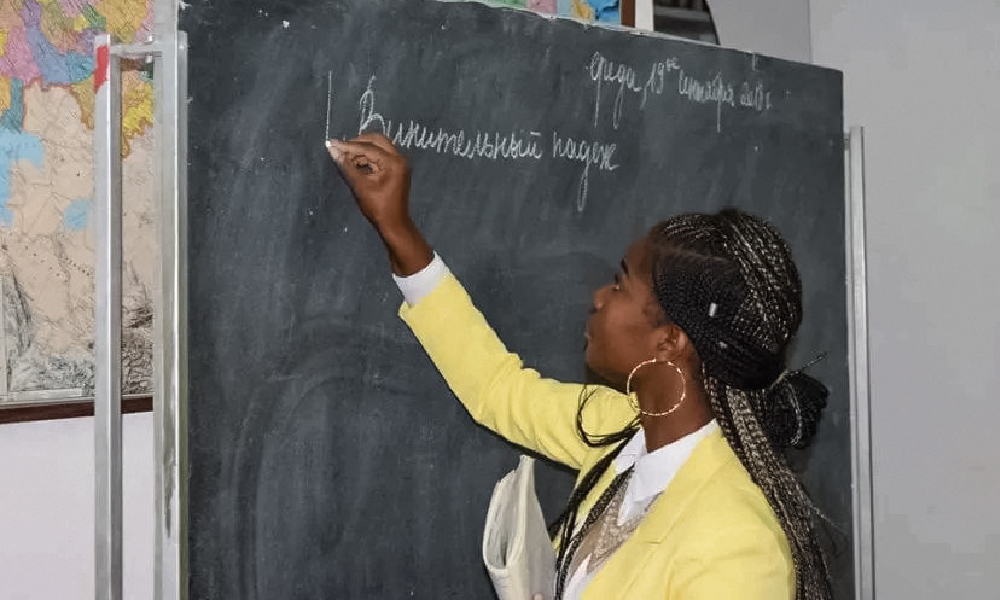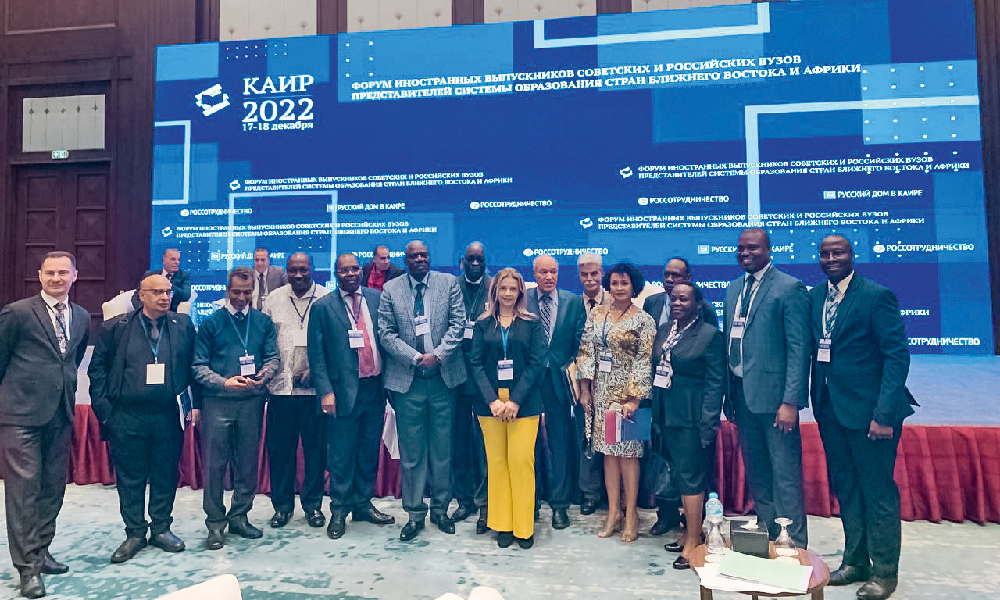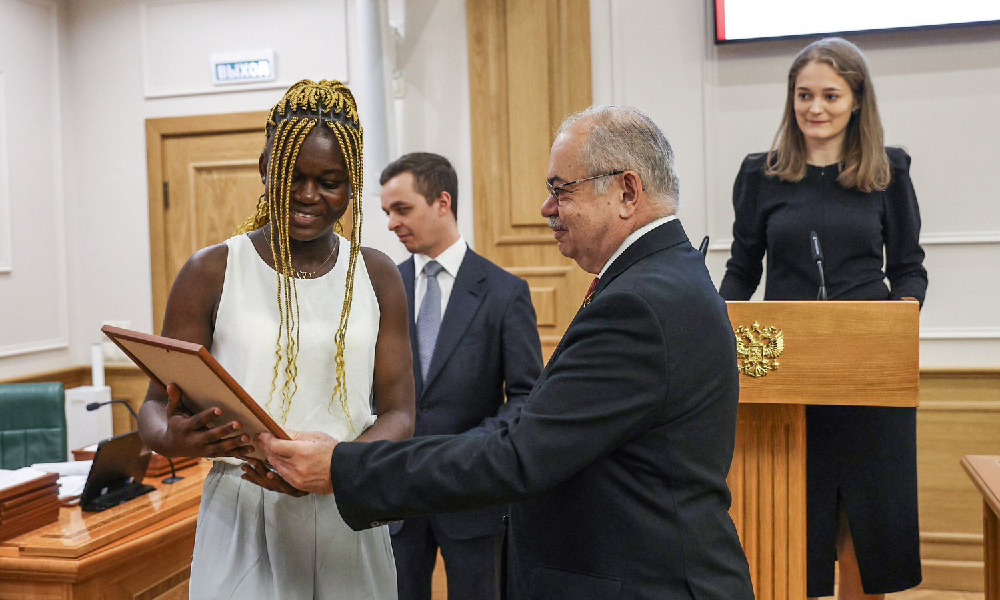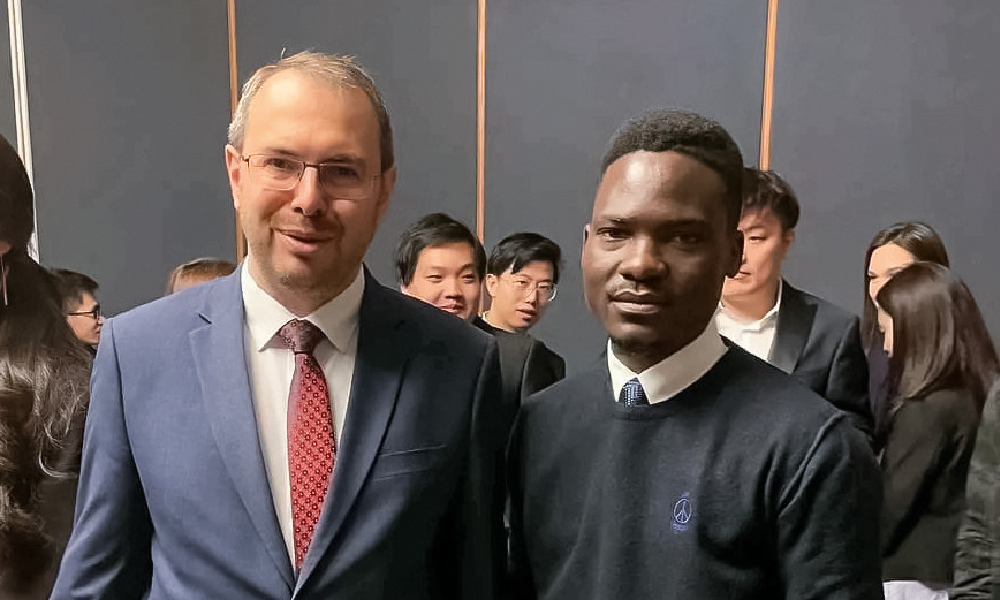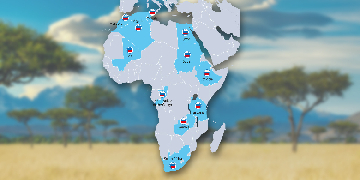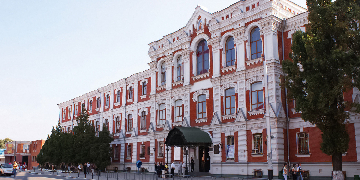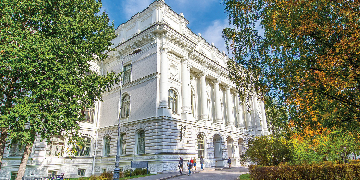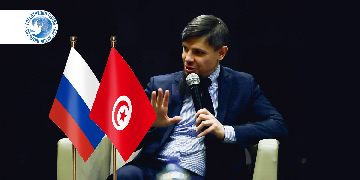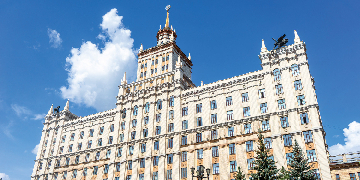In 2023, we celebrate the 55th anniversary of the Soviet Center of Culture and Science in the Republic of the Congo (RC). Later, the Russian Cultural Center became an heir to the institution. Then it was renamed the Russian House. However, the first Congolese students went to study in the USSR as early as in 1964. More than 9,000 highly qualified specialists have been trained for over 50 years. And, according to the RC Embassy in Russia, more than 1,500 students receive training in civilian specialties alone in Russia today. Maria Fakhrutdinova, Head of the Rossotrudnichestvo Representative Office in Brazzaville, talks about what attracts the Congolese and what path is followed by those wishing to study in Russia.
Education in Russia for Citizens of the Republic of the Congo
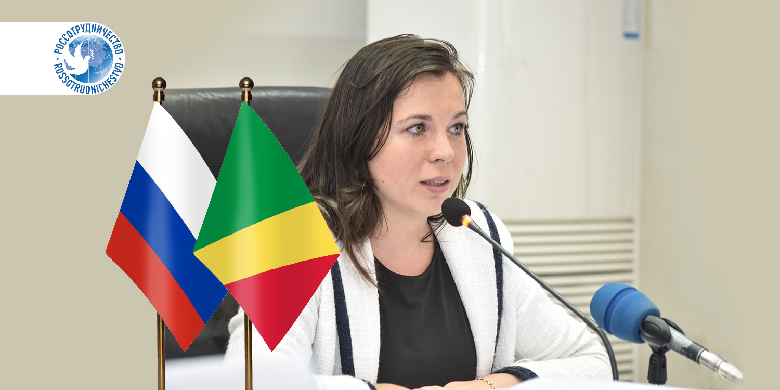
The best of the best
250 – that’s how many Russian Government scholarships are allocated for citizens of the Republic of the Congo. There were only 70 scholarships as far back as 2015 and 105 in 2021. During the last two years, each student recruitment session has been named after some famous figures or events that are important to the two countries. For example, the 2022/23 recruitment session bears the name of Peter the Great, and the 2023/24 recruitment session is named after the Summit “Russia – Africa 2023.”
Students are selected to study within the quota as part of cooperation between the Russian Federation and the Republic of the Congo. In this process, the Republic of the Congo undertakes to award its scholarships to selected candidates as well as to verify profiles during the entire selection process. Taking into account these aspects, most applicant profiles are first sent to the Ministry of Higher Education, Research and Technological Innovations of the Republic of the Congo that processes the information and provides advisory support. The Russian House also provides assistance in creating profiles and building portfolios and consults on career guidance and the choice of study programs and universities.
The Congolese look forward to the scholarship campaign announcement. The Russian House extensively announces the start of the enrollment campaign through the Representative Office’s own resources, local radio and mass media.The relevant Ministry of the Republic of the Congo also provides information support. To increase the coverage of the audience, which is potentially interested in education in Russia, the Russian House has established partnership relations with organizations working with talented young people. Our aim is to select the best students!
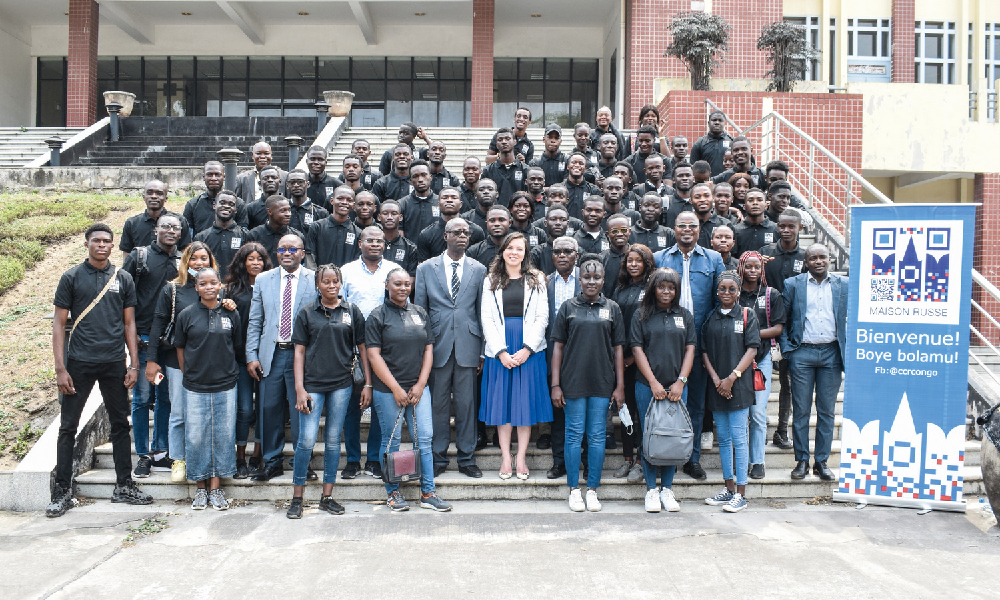
The number of candidates per place is traditionally high. However, it is important to note that there are some great obstacles.
- The long procedure for issuing national passports and related documents often becomes a reason why the Congolese cannot submit their profiles in due time.
- The absence of good Internet access becomes another barrier for school students. That is exactly why school leavers get assistance in filling in application forms when they contact the Russian Cultural Center.
- Another obstacle is related to psychology. Many school students from regions do not even dare to dream of such prospects or just do not think of them. That is why the Russian House organizes regular visits to the regions that offer or plan to offer Russian language courses.
Russian language as a driver
Since 1977, the Rossotrudnichestvo Representative House has been holding the Russian language Olympiad. The finalists are enrolled out of competition at the philological faculties of Russian universities.
From our point of view, such an approach helps us maintain continuity and the best traditions of teaching Russian language. The Olympiad winners include the holders of Alexander Pushkin Medal, which is awarded by the International Association of Russian Language and Literature Teachers, as well as conspicuous statespeople.
The winners of the regional stages participate in the Olympiad Final held by the Russian House. It is important to realize that Russian is taught at 35% of lyceums of the Republic of the Congo that are located in the cities of Brazzaville, Gamboma, Olombo, Djambala, Dolisie, etc. Every year around 4,000 students take state school leaving exams in the Russian language.
Since 2022, to increase coverage, the Russian House has signed a number of cooperation agreements with several regions to recruit talented candidates. For example, the agreement with the Plateaux region provides for cooperation with the boarding school that teaches the most gifted students showing excellent academic performance.
In 2023, seven lyceum students from Ongoni will come to Russia as part of such cooperation. This region has a huge agrarian potential, and that is why training personnel for the development of agriculture is one of the priority tasks.
How to get education in Russia?
There are two options: apply on a contract basis or within the Russian Government quota.
To apply for the quota:
- In the period from September 1 to November 1, candidates must register on the education-in-russia.com website. Candidates’ profile must contain school certificates, transcripts, and passports. At the same time, they must submit their profiles to the Ministry of Higher Education for review to get a scholarship from the Republic of the Congo.
- Wait till the profile is preliminarily selected: the results are published by the Ministry of Education and the Russian House. Upload medical certificates and tests (Hepatitis С and В, tuberculosis, HIV), legalize profiles at the RC Ministry of Foreign Affairs and at the Consulate of the Russian Federation.
- Wait till the candidate is finally approved and prepare for going to Russia.
The most interesting things are in store for selected applicants at the third stage. They are actively engaged in all cultural events held by the center, hold Russian song contests, play on the stage, meet with young leaders, and take a blogging course. Depending on their Russian language proficiency, scholarship holders are divided into groups. This helps them to get acquainted with each other even before going to Russia, find out more about our country and cultural differences.
To get a scholarship from the Russian Government and the opportunity to study in Russia, applicants must pass the portfolio competition. The working group assessing participants’ portfolios includes the representatives of the Russian Embassy in the Republic of the Congo, the Russian House, and the relevant Ministry of the Republic of the Congo as well as representatives of universities.
What does the competition jury assess?
- Academic performance in major subjects
- Scientific, sports and social activities
The most popular fields of study among the Congolese are:
- Medicine
- Economics
- Law
- Oil Industry
- IT
Unfortunately, agriculture is not the most popular choice for young people. However, this field experiences a staff shortage that will become more and more acute as the industry advances. Rossotrudnichestvo’s agreements with agrarian lyceums partly contribute to the solution of the problem. Gifted and motivated students become eligible for scholarships.
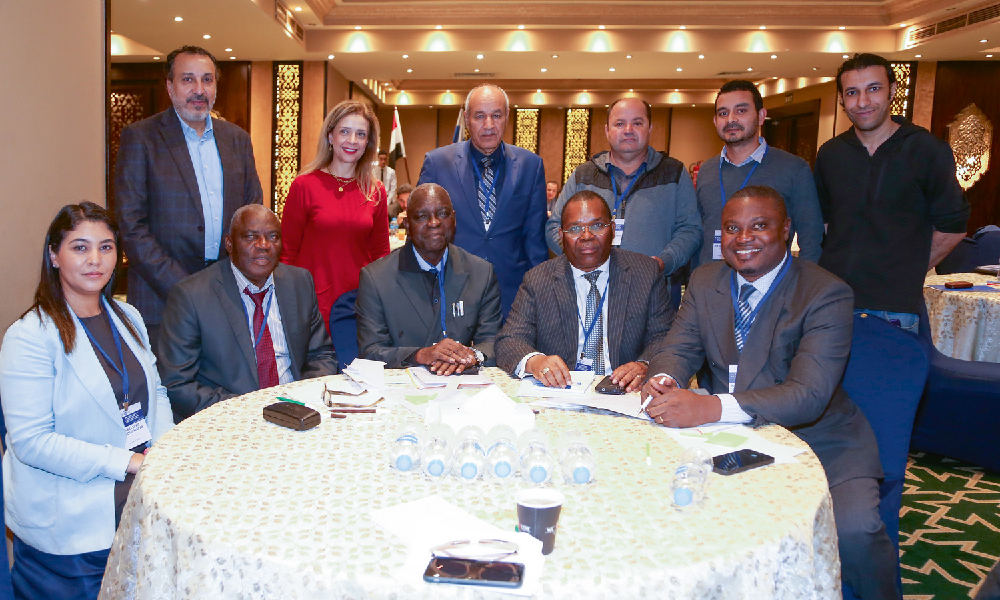
Career prospects for graduates of Russian universities
University degrees earned in Russia are highly valued in the Republic of the Congo, mainly because many high-ranking officials are graduates of Soviet and Russian universities. Our graduates are the Minister of Foreign Affairs, Francophonie and the Congolese Abroad, the Minister of Health and Population, the Minister of National Defense, the Minister of Water Economy and Transport Routes as well as the State Minister Anri Jambo. The whole constellation of outstanding politicians: the President of the Commission on Cultural Affairs, Education and Sports, Deputy Bris Boniface Ngulu, Counselor to the President for State Awards, and many others. Among the young graduates (32 years old) – Counselor for Youth Outreach Affairs to the Minister of Youth Affairs and Sports, Civic Education, Personnel Training and Employment of the Republic of the Congo – Florian Kulimaya.
Many health professionals and pharmacists, who have earned their degrees in the USSR and Russia, work in the Republic of the Congo. And today degrees from Russian universities for the Congolese are a quality mark.
Russian language teachers have a special place. Coming back home, graduates undertake a work placement at the Russian House or the Ministry of Foreign Affairs and work at lyceums. In 2023, four philologists were accepted for civil service (three were employed as teachers, and one as a diplomatic official). In the Republic of the Congo, teachers belong to a category of civil servants. Every year they take advanced training courses in different countries such as Tanzania, Egypt, Russia, and Senegal.
